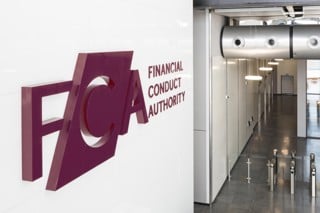Lloyds Banking Group has allocated £450 million to cover potential expenses related to regulatory investigations into historic motor finance commission agreements.
Last month, the Financial Conduct Authority announced an inquiry into discretionary commissions on car financing deals, citing concerns that such arrangements incentivised lenders and dealers to increase interest rates for customers.
Analysts are concerned that these investigations could result in significant costs for the industry, possibly amounting to billions of pounds.
Lloyds, which operates Black Horse motor finance, the UK's largest provider, disclosed this provision alongside its fourth-quarter results.
The bank reported that underlying pre-tax profits for the final quarter of the year decreased to £1.7 billion, meeting analysts' expectations. Full-year profits stood at £7.8bn, also aligning with forecasts.
Close Brothers has also announced that it is scrapping dividends this year as a precaution against potentially huge compensation payouts.
That prospect also forced the banker - whose car finance lending through its Close Brothers Motor Finance arm makes up around fifth of its loan book at £1.95bn – to warn that it was reviewing whether it would even issue shareholder dividends in 2025.
Discussing Lloyds Banking Group results, executive director and chief financial officer William Chalmers said that although the extent of misconduct and customer loss remains unclear, it believed that it had complied with all relevant regulations.
“In the meantime, we've had one Financial Ombudsman judgement, we've had a series of County Court cases most of which have actually decided in our favour. When we look at the review, therefore, we welcome it in order to get some clarity on the situation.”
He explained that there were two components in the £450m provision, firstly operational and legal expenses and, secondly, redress.
“The redress is built upon a variety of scenarios, which, in turn, are built upon various inputs to those scenarios. So, for example, time periods. How far back does this go? 2007 being one example but other time periods could be taken into consideration.
“Likewise, what are the commission models that are taken to account? Likewise, what is the relevant benchmark for compensation should redress arise? Should it be a zero-commission structure or should it be a ‘reasonable’ commission structure? Likewise, what type of redress measure might the FCA want us to consider? Is it proactive or is it reactive, response rates and uphold rates?
He said that numerous scenarios had been considered, leading it to peg provision at £450m although noted: "...whether it is a zero-commission number that is taken as a benchmark for any potential redress or whether it is a ‘reasonable’ rate of commission makes a big difference to the ultimate provision that might be necessary - cutting it by more than 50%, for example.”
He added that the business was not specifying exactly how that provision is being split although noted that ‘there is a decent chunk of each within that overall'.
Aidan Rushby, founder and CEO of direct-to-consumer car finance lender Carmoola, said: the move by Lloyds reads read as a ‘tacit acknowledgement’ of the scale of the car finance mis-selling problem.
“The sizeable reserve that has been set aside to deal with compensation claims underscores the serious concerns surrounding past commission practices in the car finance industry and highlights the systemic problems that tipped the balance too far away from consumer interests, leading to unfairness and poor value.
“We have always championed a customer-first approach to car financing, and now the FCA's investigation has provided the wake-up call for traditional lenders to also prioritise the needs and rights of consumers.
“The FCA's intervention is welcome, and we are hopeful that it will lead to significant industry-wide changes, and for all financial institutions to align themselves with the principles of fairness and transparency."





















Login to comment
Comments
No comments have been made yet.